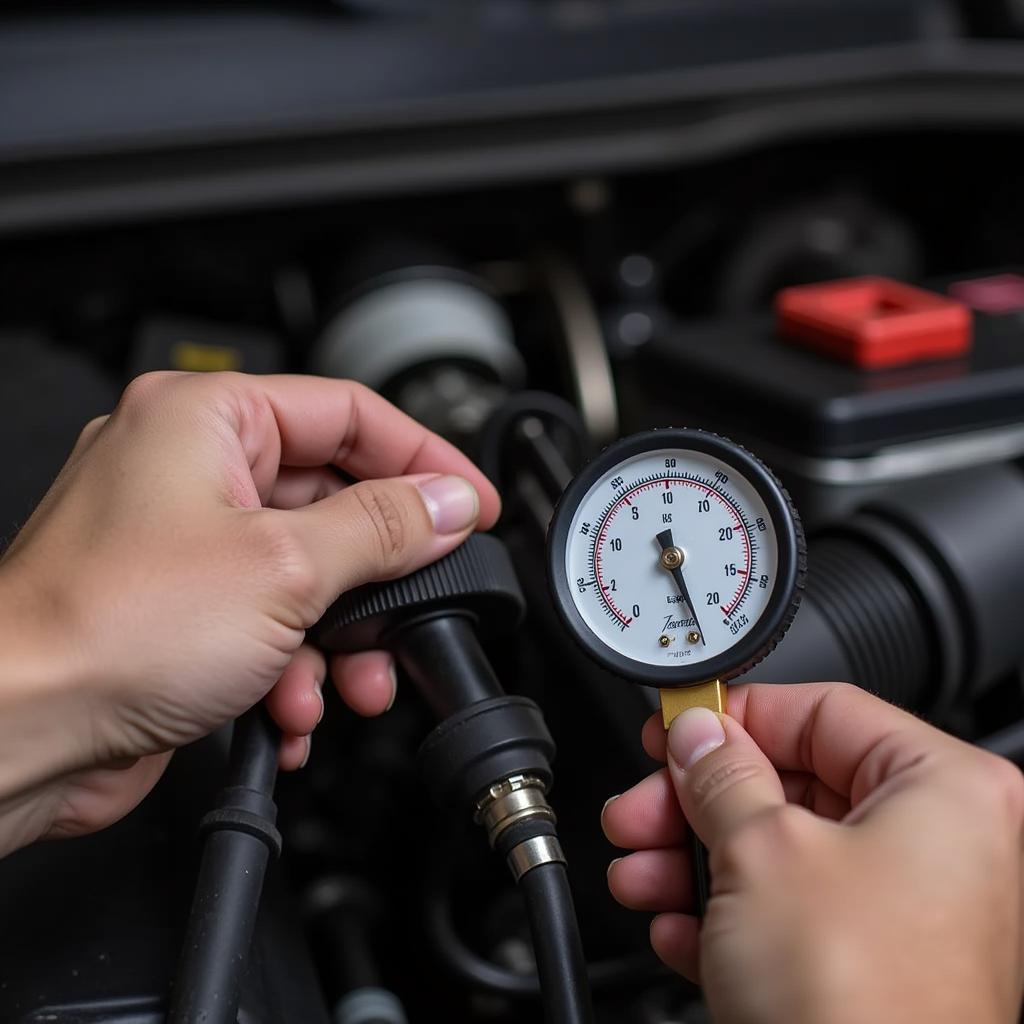My car won’t start but the battery is good. This frustrating scenario is more common than you might think. While a dead battery is often the culprit behind starting issues, there are numerous other reasons why your engine might refuse to turn over. This article explores the potential causes and provides actionable solutions to help you get back on the road. We’ll cover everything from simple checks you can perform yourself to more complex issues that may require professional diagnostics and remote software installations.
Similar to how a seat belt warning light wont go off, a car not starting can be caused by a faulty sensor.
Common Reasons Why Your Car Won’t Start with a Good Battery
Several components work together to start your car, and a problem with any of them can prevent the engine from cranking or firing up. Let’s delve into some of the most common culprits.
Starter Motor Issues
The starter motor is responsible for cranking the engine. A failing starter might produce a clicking sound when you turn the key or may not make any noise at all. This is a common issue and often requires replacement or repair.
Faulty Ignition System
The ignition system provides the spark that ignites the air-fuel mixture in the engine cylinders. Problems with the ignition switch, ignition coil, or spark plugs can prevent the engine from starting.
Fuel System Problems
If the engine isn’t getting fuel, it won’t start. This could be due to a clogged fuel filter, a malfunctioning fuel pump, or a faulty fuel injector. Checking the fuel pressure is essential in diagnosing fuel-related starting problems.
Bad Alternator
While a good battery is necessary to start the car, a faulty alternator can prevent the battery from recharging. If the alternator isn’t working correctly, the battery might have enough power to initially crank the engine, but it won’t have the sustained power to keep it running. Much like the issue of car battery check engine light, a failing alternator can drain your battery and prevent starting.
Sensor Malfunctions
Modern cars rely on numerous sensors to control engine functions. A malfunctioning crankshaft position sensor or camshaft position sensor can prevent the engine from starting. These sensors provide crucial information to the engine control unit (ECU).
Immobilizer Problems
The immobilizer system is designed to prevent theft. It uses a transponder key that communicates with the ECU. If there’s a problem with the key or the immobilizer system, the engine won’t start.
Diagnosing and Fixing the Problem
Identifying the specific cause of your car’s starting issue often requires a systematic approach.
- Check for Obvious Signs: Look for loose connections, damaged wires, or any signs of physical damage to components.
- Listen for Unusual Sounds: Clicking sounds often indicate a starter motor issue, while a whining noise might suggest a fuel pump problem.
- Test the Battery and Alternator: Even if you think the battery is good, double-check its voltage. Also, test the alternator to ensure it’s charging correctly. This is similar to knowing how to add bluetooth to your car radio, both involve understanding your car’s electrical system.
- Check the Fuel System: Ensure the fuel pump is working and that fuel is reaching the engine.
- Inspect the Ignition System: Check the spark plugs, ignition coil, and ignition switch for any signs of damage or malfunction.
 Mechanic Checking the Car Fuel System
Mechanic Checking the Car Fuel System
“When diagnosing a car that won’t start, even with a good battery, it’s crucial to systematically eliminate each potential cause,” advises John Smith, Senior Automotive Diagnostician at AutoTech Solutions.
Remote Diagnostics and Software Solutions
In many cases, diagnosing and fixing starting problems requires specialized diagnostic tools and software. Remote diagnostics allows technicians to access your car’s computer system remotely to identify the root cause of the issue. This can save time and money compared to traditional diagnostic methods. Remote software installations can also be performed to update or reprogram the car’s ECU, addressing software-related starting issues. This ties in with keeping keep your car battery from dying as remote diagnostics can detect early warning signs.
“Remote diagnostics and software updates are becoming increasingly important in modern car repair,” adds Jane Doe, Lead Software Engineer at CARDIAGTECH. “They allow us to quickly and efficiently address complex issues that might otherwise require extensive troubleshooting.”
Conclusion
A car that won’t start even with a good battery can be caused by a variety of issues, from a faulty starter motor to sensor malfunctions. By systematically checking the different systems and utilizing advanced diagnostic tools, like remote diagnostics and software solutions, you can effectively pinpoint the problem and get your car running smoothly again. Remember, if you’re unsure about any of the steps, it’s always best to consult with a qualified automotive technician. This is especially relevant if you’ve recently experienced issues like car battery corrosion car wont start.
